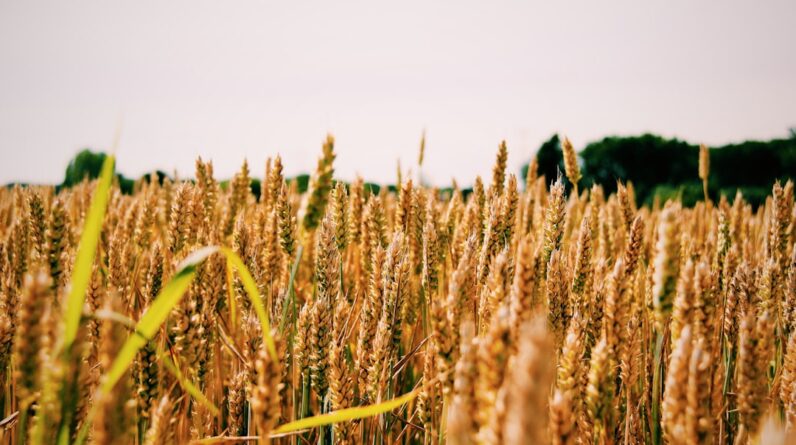
Inland pollution is a pressing environmental issue that often goes unnoticed, overshadowed by the more visible threats to our oceans and coastlines. However, the health of our inland ecosystems is intrinsically linked to the health of our oceans. As you delve into the complexities of this topic, you will discover how pollutants originating from land can travel vast distances, ultimately affecting marine life and oceanic ecosystems.
Understanding inland pollution is crucial, as it serves as a precursor to the degradation of our oceans, highlighting the interconnectedness of terrestrial and marine environments. The sources of inland pollution are diverse, ranging from industrial waste to agricultural runoff. These pollutants can seep into rivers, lakes, and streams, creating a pathway that leads directly to the ocean.
As you explore this intricate relationship, you will come to appreciate the importance of addressing inland pollution not only for the sake of terrestrial ecosystems but also for the health of our oceans. The journey begins with recognizing the various forms of pollution that plague our inland areas and understanding their far-reaching consequences.
Key Takeaways
- Inland pollution has a significant impact on ocean health, affecting marine life and ecosystems.
- Sources of inland pollution include urbanization, agricultural practices, and industrial activities.
- Urbanization contributes to inland pollution through increased runoff of pollutants into waterways.
- Agricultural practices, such as the use of fertilizers and pesticides, can lead to inland pollution and ultimately affect ocean health.
- Industrial pollution, including the release of chemicals and waste into waterways, has detrimental effects on oceans and marine life.
The Impact of Inland Pollution on Ocean Health
The impact of inland pollution on ocean health is profound and multifaceted. When pollutants such as heavy metals, plastics, and chemicals enter waterways, they can travel downstream, eventually reaching the ocean. This process can lead to a cascade of negative effects on marine ecosystems.
For instance, toxic substances can accumulate in the bodies of marine organisms, disrupting their reproductive systems and leading to population declines. As you consider these implications, it becomes clear that the health of inland waters is directly tied to the vitality of oceanic life. Moreover, inland pollution can contribute to phenomena such as algal blooms, which can devastate marine environments.
Nutrient runoff from agricultural practices often leads to excessive growth of algae in coastal waters. When these blooms die off, they decompose and consume oxygen in the water, creating dead zones where marine life cannot survive. This cycle illustrates how inland pollution not only affects local ecosystems but also has far-reaching consequences for ocean health.
By understanding these connections, you can better appreciate the urgency of addressing inland pollution as a means to protect our oceans.
Sources of Inland Pollution

Inland pollution arises from a variety of sources, each contributing to the degradation of both terrestrial and aquatic environments. One significant source is industrial activity, where factories and manufacturing plants release pollutants into the air and water. These emissions can include harmful chemicals and heavy metals that find their way into nearby rivers and lakes.
As you consider the scale of industrial operations, it becomes evident that stringent regulations and responsible practices are essential to mitigate their impact on both inland and oceanic ecosystems. Agricultural practices also play a critical role in inland pollution. The use of fertilizers and pesticides can lead to runoff that carries harmful substances into waterways.
This runoff not only affects freshwater ecosystems but also contributes to nutrient loading in coastal areas, exacerbating issues like algal blooms. As you reflect on these agricultural practices, it is important to recognize the need for sustainable farming methods that minimize environmental impact while still meeting food production demands. By addressing these sources of inland pollution, you can contribute to a healthier environment for both land and sea.
The Role of Urbanization in Inland Pollution
Urbanization is another significant factor contributing to inland pollution. As cities expand, natural landscapes are replaced with concrete and asphalt, leading to increased runoff during rain events. This runoff often carries pollutants such as oil, heavy metals, and debris into nearby waterways.
You may find it alarming that urban areas can generate substantial amounts of waste that ultimately end up in rivers and lakes, further complicating the issue of inland pollution. Additionally, urbanization often leads to increased population density, which can strain local infrastructure and waste management systems. Inadequate sewage treatment facilities can result in untreated wastewater being discharged into waterways, posing serious risks to both human health and aquatic ecosystems.
As you consider the implications of urban growth on inland pollution, it becomes clear that sustainable urban planning and effective waste management strategies are essential for protecting both inland waters and the oceans they feed into.
Agricultural Practices and Their Impact on Ocean Pollution
Agricultural practices are a double-edged sword when it comes to pollution; while they are essential for food production, they can also have detrimental effects on both inland and ocean health. The use of fertilizers is particularly concerning, as excess nutrients can wash into rivers and streams during rainfall events. This nutrient runoff can lead to eutrophication in coastal waters, resulting in harmful algal blooms that deplete oxygen levels and create dead zones where marine life cannot thrive.
As you explore this issue further, you will see how agricultural practices must evolve to minimize their impact on both freshwater and marine ecosystems. Moreover, livestock farming contributes significantly to inland pollution through manure runoff. When not managed properly, animal waste can contaminate waterways with pathogens and excess nutrients.
This contamination not only affects freshwater ecosystems but also has cascading effects on ocean health as these pollutants make their way downstream. You may find it crucial to advocate for sustainable agricultural practices that prioritize environmental stewardship while ensuring food security for growing populations. By promoting responsible farming techniques, you can help mitigate the impact of agriculture on both inland waters and the oceans.
Industrial Pollution and Its Effects on Oceans

Industrial pollution remains one of the most significant contributors to inland pollution with far-reaching effects on ocean health. Factories often discharge waste products directly into rivers or lakes without adequate treatment, introducing harmful chemicals into aquatic ecosystems. These pollutants can bioaccumulate in marine organisms, leading to toxic effects that ripple through the food chain.
As you consider the implications of industrial activities on both land and sea, it becomes evident that stricter regulations and innovative technologies are necessary to reduce emissions and protect our waterways. Furthermore, industrial accidents such as oil spills or chemical leaks can have catastrophic consequences for both inland and oceanic environments. These incidents not only harm local wildlife but also disrupt entire ecosystems for years to come.
You may find it essential to support policies that promote corporate responsibility and environmental accountability within industries. By advocating for cleaner production methods and better waste management practices, you can play a role in reducing industrial pollution’s impact on our oceans.
Solutions to Inland Pollution and Its Impact on Oceans
Addressing inland pollution requires a multifaceted approach that involves collaboration among governments, industries, farmers, and communities. One effective solution is implementing stricter regulations on waste disposal and emissions from industrial activities. By holding companies accountable for their environmental impact, you can help ensure that pollutants are managed responsibly before they reach waterways.
Additionally, investing in green technologies can provide industries with innovative solutions that minimize waste generation while maintaining productivity. Another critical aspect of combating inland pollution is promoting sustainable agricultural practices. Encouraging farmers to adopt methods such as crop rotation, cover cropping, and integrated pest management can significantly reduce nutrient runoff into waterways.
You may also consider supporting local initiatives that focus on educating farmers about environmentally friendly practices. By fostering a culture of sustainability within agriculture, you can contribute to healthier inland waters and ultimately protect ocean ecosystems from harmful pollutants.
The Importance of Addressing Inland Pollution for Ocean Health
In conclusion, addressing inland pollution is not merely an environmental concern; it is a vital step toward safeguarding our oceans’ health. The interconnectedness between terrestrial and marine ecosystems underscores the importance of recognizing how pollutants from land can adversely affect oceanic life. As you reflect on this issue, it becomes clear that proactive measures must be taken to mitigate the sources of inland pollution—be it through stricter regulations on industrial emissions or promoting sustainable agricultural practices.
By taking action against inland pollution, you are not only protecting freshwater ecosystems but also ensuring the vitality of our oceans for future generations. The responsibility lies with each one of us to advocate for change—whether through supporting policies that prioritize environmental health or adopting sustainable practices in our daily lives. Ultimately, your efforts can contribute significantly to a healthier planet where both land and sea thrive in harmony.
In a related article, How Does Planting Trees Help Climate Change?, the importance of reforestation and its impact on combating climate change is discussed. Just as Beyond the Beach highlights the connection between inland habits and ocean pollution, this article emphasizes the role that planting trees plays in mitigating environmental damage and promoting a healthier planet. Both articles underscore the interconnectedness of our actions on land and their repercussions on our oceans, making a strong case for sustainable practices and conservation efforts.
FAQs
What are the inland habits that are polluting our oceans?
Inland habits that are polluting our oceans include improper disposal of waste, littering, industrial runoff, and agricultural runoff. These activities contribute to the pollution of rivers and streams, which eventually flow into the oceans.
How does pollution from inland habits affect the oceans?
Pollution from inland habits can have a significant impact on the oceans. It can lead to water contamination, harm marine life, and contribute to the formation of ocean dead zones. Additionally, plastic waste from inland areas can make its way into the oceans, causing harm to marine animals and ecosystems.
What are some ways to reduce pollution from inland habits?
Some ways to reduce pollution from inland habits include proper waste disposal, recycling, reducing the use of single-use plastics, implementing better agricultural and industrial practices, and promoting awareness and education about the impact of inland pollution on the oceans.
How can individuals contribute to reducing pollution from inland habits?
Individuals can contribute to reducing pollution from inland habits by properly disposing of waste, reducing their use of single-use plastics, participating in community clean-up efforts, supporting environmentally-friendly practices, and advocating for policies that promote sustainable waste management and pollution reduction.





